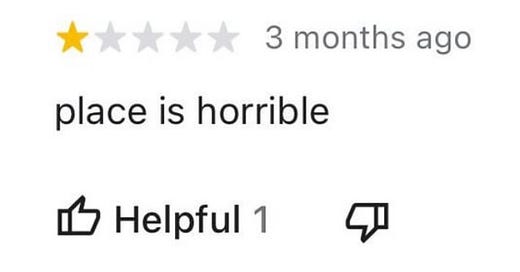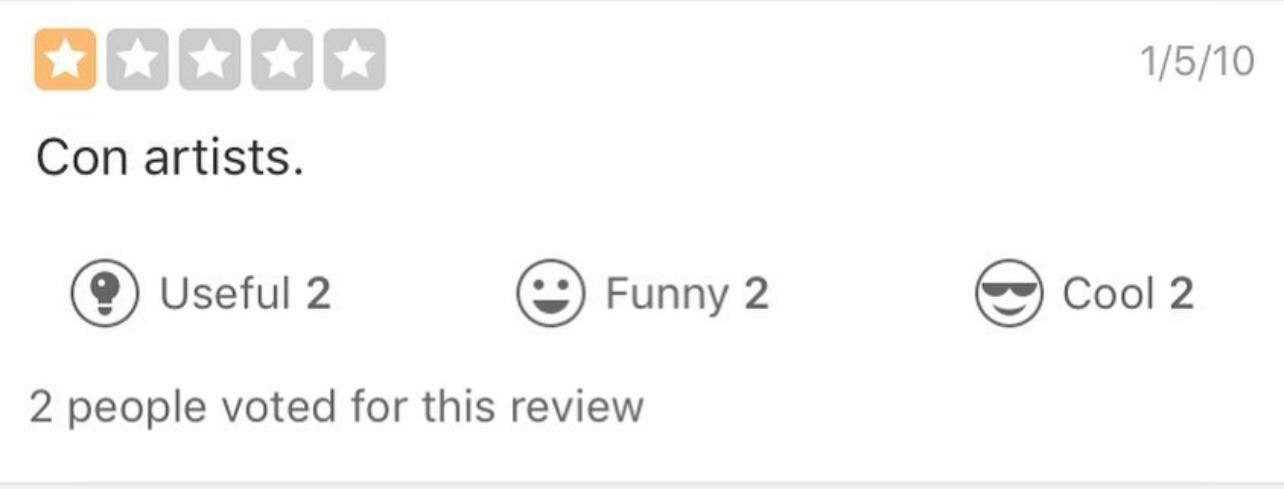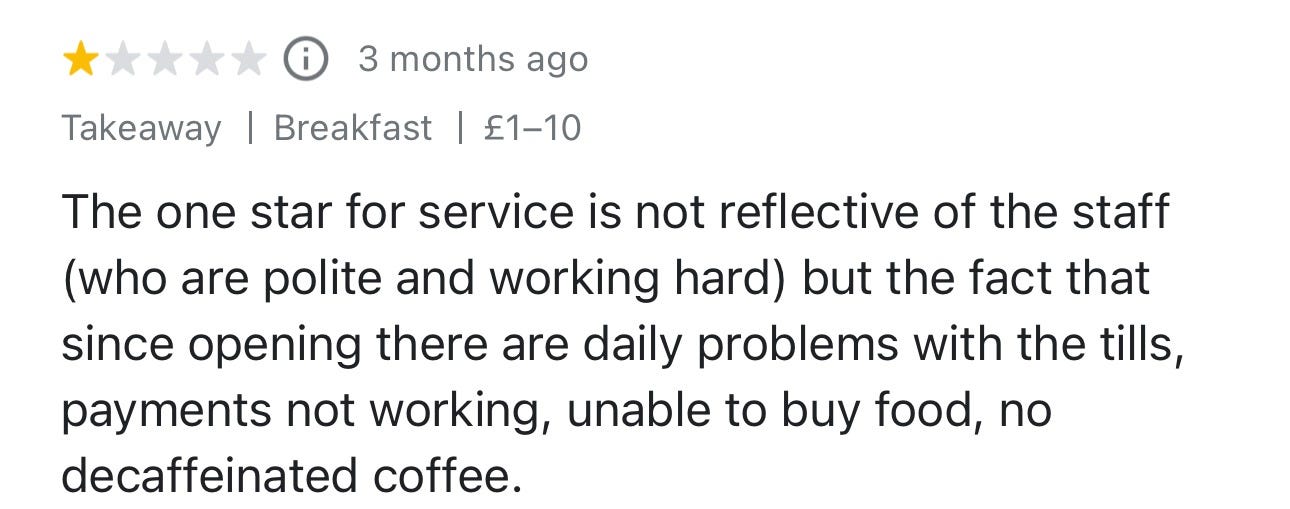Online reviews are a mess – and they're bad for business.
A one star, five star restaurant is not the same as a five star, one star restaurant. Let me explain.
A bakery I used to work at once got a one star review online:
“two days in succession i went to buy bread. they had run out by lunchtime… they also said i could get there at 8am. yeah i could....or they could maybe make more bread, employ more people, get more customers and make more money. WIN WIN. but no.....much better that we all get up and compete with each other and pretend we're living in stalinist russia.”
Clearly, one of the most fantastically moronic reviews you will ever have the misfortune of reading. It's obviously disappointing to discover that an item is sold out but did the reviewer – I’m guessing a sticky-fingered white male in his early 40s who spends his days watching climate change denial YouTube while his mum tramples down the basement stairs to top up his Mountain Dew – really think the business hadn’t considered ‘just making more?’
Stocking a bakery so that it sells out by closing time is a near-impossible task: if you ‘just bake more’ and don’t shift it, it results in a lot of cumbersome waste. Nothing hurts businesses more than waste. You also can’t ask bakers to work any harder than they do and there’s likely no space for them to make extra bread in, anyway. Everything is at maximum capacity, all the time. That’s how food businesses survive.
But yes, we live in Stalinist Russia. Wholly confirmed by the freedom of speech Dave enjoyed to so publicly express the monkey-with-symbols thought he had clanging in his head. I’m sure the pulse-quickening sense of righteousness he felt was near sexual.
The online space allows impulsive behaviour to go rewarded. If something doesn’t go exactly as planned, people like Dave pop off about it. Sadly, his one star review, like many others suffered by independent business just trying to do right, hurt.
I’ve said it before, I’ll say it again: one star reviews have pointy edges. Not only are these reviews incredibly demoralising for staff who work tirelessly, they’re also disproportionally punishing. We are, I swear, wired to hone in on the single negative review complaining about a rude waiter (subjective) rather than the nine other more grounded reviews extolling the experience. If something can be bad once, we are convinced it will be again.
I take issue with it. I have sat at a computer with a front of house manager as one of these reviews has come in, trying to unpick what happened, if anyone needs to be help accountable and what, if anything, can be learnt. It was a huge drain on our spirits.
But my greater issue is that we have lost the ability to engage with new experiences with no expectations. In other words, we’ve become review-dependent. All products and services are now subjected to constant public scrutiny, from yoga instructors to a website selling vacuum cleaners. Food businesses in particular find themselves hostage to multiple review platforms: we have TripAdvisor, Foursquare, Google and more. By endlessly consuming all this shrill opinion, we set bars way too high, or we arrive at analysis paralysis, the phenomenon where we cannot make a decision because there are too many options. I, for one, have definitely spent too long reading restaurant reviews only to slam my laptop shut, unsure what to do. I long for a simpler time.
While it might seem fair to subject all experience to examination, so often, that examination isn’t fair. Food businesses can have bad days. I once forgot to put salt in a huge batch of burger bun dough. It fermented to high heaven, flopping about like an inflatable tube man at a car dealership. We weren’t sure what had happened until we baked and ate them: to eat saltless bread is an awful experience, it tastes like texture. It was an honest mistake in a thankfully supportive environment. But imagine if a review had come in that day:
“Do NOT try their burger buns. They are so bland and disgusting, none of us could finish them, I heard this was a good bakery but clearly you need to avoid.”
Would you go try the burger buns after reading that? I experienced something similar on Instagram last year where I recommended a bakery for a doughnut. Someone commented the day after that the doughnut was disgusting and that clearly I’d been paid by the business. I hadn’t, obviously. When I tried to calmly suggest that I, and many others, had found the doughnut to be delicious and that perhaps the bakery had had a bad day, the reply was: “Sorry but disagree, a place that is public needs to be regular.”
I stopped replying to Dave 2 because I couldn’t be bothered to point out how unfair it was to hold ‘public’ businesses (whatever that means) to such incredibly high standards. Mistakes happen all the time in every office around the world. Why should food businesses not be given a pass?
Perhaps Dave 2 simply disliked the doughnut. I liked it. What do you do? You might say that reviews level themselves out but it’s a struggle to say on TripAdvisor what counts as good. 4.6? 4.7? I’ve had some awful 4.5s, some incredible 4.1s. The problem is the lack of nuance in these quick-fire reviews. And none of these scores account for taste. One person’s haute cuisine is another person’s haunted house.
This brings me to concept of scaling your reviews. Let me explain: a five star restaurant, by which I mean a Michelin-y restaurant with a tasting menu and table cloths, can actually be a one star, five star restaurant: it’s a fancy restaurant that obviously does fancy food but on the grand scale of things, it wasn’t the best example of one. Compare this with a greasy shack selling fat prawns on paper plates with a shout and an eye roll. We’d call it a one star – but as one stars go, it’s a five star example.
Got it? Good. Some people will think a three star restaurant deserves five stars when it really doesn’t, it’s only serving up a decent meal at good value. Or they’ll get wowed by a tasting menu and think, ‘now this is five stars!’ when in reality it’s bad, highfalutin food, all smoke (literal, sometimes) and mirrors. It’s too confusing: I drive myself mad trying to gauge if a 4.6 restaurant will actually be good. I look through countless photos, cross-examine scores on other aggregators – in the end, I feel a little greasy myself.
So what should we do? I’m not saying that we should accept wavering quality. I dislike bad food with an unholy vengeance, but I am saying we should exercise restraint in our criticism. If you go somewhere and it’s bad, you should say so. But to the business itself. Email them your concerns. Not out of spite but because you want to help. Dave 1, the man who didn’t get his bread in allegedly Stalinist Russia, could have spoken to someone. He chose to take a toot on his dopamine stick instead.
What should I do, the aspiring food critic? On Instagram, I recently received a comment: “you say everywhere is great, why would should we believe you?” The answer is simple: I only post great places. I’m not going to promote bad ones, am I Dave 3? And I do eat at a lot of bad places, I just don’t post about them. In fact, over 50% of what I eat here never makes it online – something people don’t realise. To be honest, I’d like to be more critical on Instagram (an occasional pile on can be fun) but dogging on multiple businesses for lols is not. As enjoyment of content goes, it’d have diminishing returns because people would expect me to get meaner and meaner and before long, I’d be pulling criticism out of my ass. As a general rule of reviewing – perhaps as a general rule of life – it’s better to lift up the good things rather than snicker about the bad.
We should also begin to rid ourselves of our review addiction. I saw an excellent TikTok recently that suggested the following: if you want to know if an Indian/Mexican/Thai/Korean/Indonesian/Vietnamese/delete as appropriate restaurant is good, look at the reviews. If it has a 3.8 because white people are complaining about the spice levels, you’ll know the restaurant has refused to bow to western tastes and is therefore likely to be fiery and delicious. If it has a 4.7, chances are it’s embraced insipidness as a means to appeal to the masses.
Rely on word of mouth. Trusted sources (ahem). Do some research but not a whole lot. And keep an open mind. When was the last time you walked down the street, saw a restaurant and thought ‘f*ck it, let’s go here?’ If it goes wrong, so be it. That can happen even when you have read the reviews. And if the restaurant is good, I promise you, the experience will be all the sweeter.
FEEST - last few tickets
So many of you are coming to Feest, which is the best news! Esra and I are so excited to cook you up a huge Turkish feast. If you do want to come, there are some tickets left – but the 29th in particular is reaching full. It’d be wonderful to meet more of you...
I’m working very hard to make sure this supper club is a total vibe. See you there!
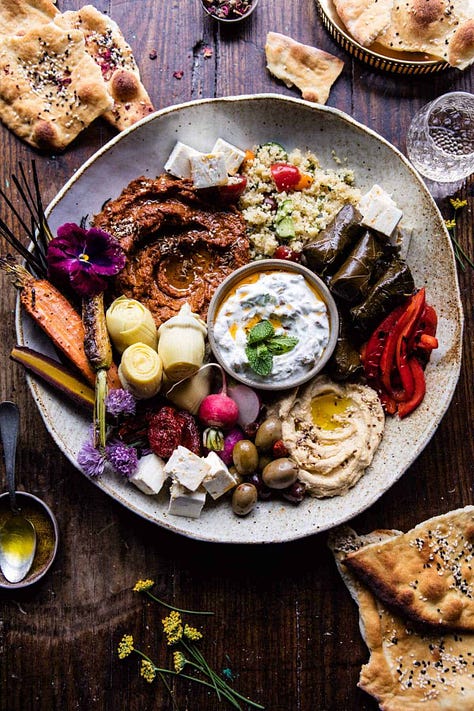
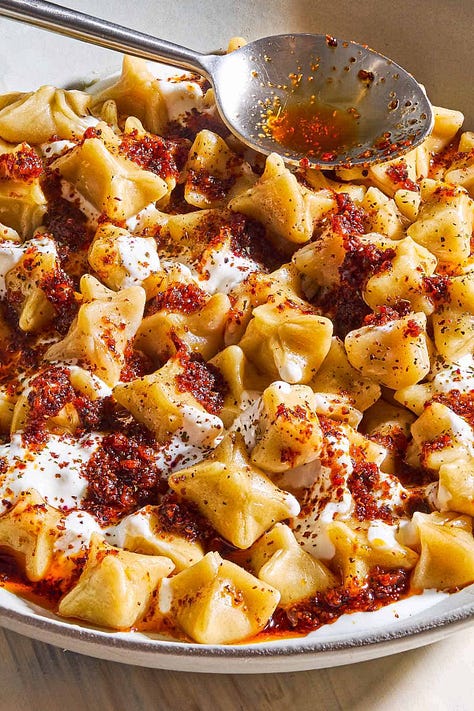
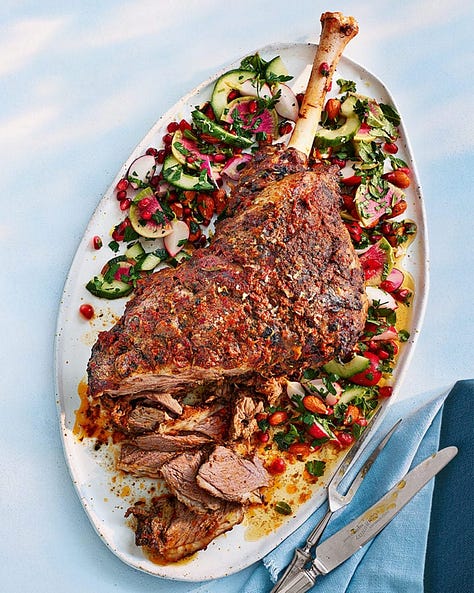
OK BYE!
To get the most out of Smaak and to support my writing, please consider becoming a paid subscriber. You’ll get access to paywalled articles and The Index, a list of all my top recommendations. Thank you so much!

